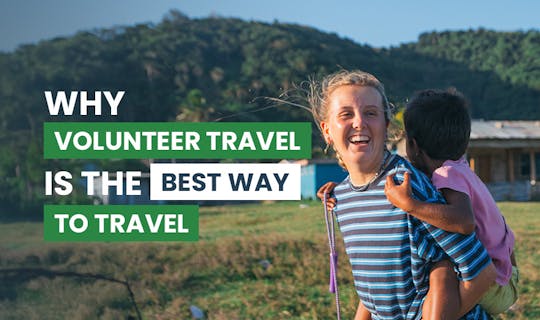
I read that, “The best kind of vacation is one where everything goes marvelously and memorably wrong. Those are the incidents you laugh about 20 years later”. Well whoever said that probably never spent an agonizing day with The Rangoon Runs… or The Aztec Two-Step… or Montezuma’s Revenge. Whatever you want to call it, you definitely want to stay healthy volunteering, because nothing ruins your plans quite like a day on the toilet - sitting, hugging, or desperately trying to find one. “All journeys have secret destinations of which the traveler is unaware”… just don’t let this be a clinic. To keep fit as a fiddle, check out our best tips for staying healthy as a volunteer in Cusco!

Into Thin Air!
Home to the highest Irish-owned pub in the world, Cusco is at 11,152 feet (3,399 meters). Even though the air we breathe apparently contains 20.9% oxygen at all altitudes, lower air pressure at high altitude locations (such as our beloved Cusco) makes it feel like there is less oxygen to breathe. So in Cusco, the effective oxygen percent is more like 13.7… not the lovely and fresh 20.9% that we’re accustomed to.

The crafty Cusco natives have adapted genetically over time to carry more oxygen in each blood cell than we do (they produce higher concentrations of the haemoglobin protein). Unfortunately, to avoid over-doing it and keeling over with “soroche” (altitude sickness), the rest of us need to allow time to gently adapt with a dose of T.L.C. (Traipsing Leisurely through Cusco). This means:
- Take it down a notch. I’m used to bolting up stairways and hills at home like a mountain goat - but I had to catch my breath after every flight of stairs in Cusco.
- If you’re anaemic, take some iron tablets to help zip that oxygen around your body.
- Eat small portions of easily digestible foods, such as yummy soups, vegetables, rice, and quinoa.
- Stay hydrated - this means water, not Pisco Sour. Be very careful if you decide to drink alcohol as you can become intoxicated more easily at altitude. We promise that this is a disadvantage. Apart from the risk of alcohol poisoning - drunk travelers make for very easy targets of petty theft. Losing your cellphone and wallet are guaranteed to upgrade any hangover.

Packing Like A Pro
Although there are plenty of easily accessible pharmacies in Cusco that are well-stocked, it’s nice to come prepared with some basic self-care items in your first-aid kit, so that – if needed – you don’t have to worry about sourcing anything when you’re feeling “blah”.
- Pocket hand sanitizer. Bring this with you everywhere!
- Baby wipes / wet wipes. Another “must” for your day pack, so you never get caught out without toilet paper… also great for wiping faces, hands, etc. (handy for when working with kids!)
- Throat lozenges and nasal spray – combat the mountain air dryness before you end up with a sore throat.
- Powdered electrolytes – these little packets are great for rehydration (in case you’ve had a bit of an upset tummy), are light to pack, and take up virtually no space in your suitcase.
- Vitamins/probiotics/immune support - a healthy volunteer is a happy volunteer!
- Pants – It’s commonly stated that Cusco doesn’t get a lot of annoying mosquitoes and bugs due to the climate and altitude, so you may get some sun on your pins in the city. However it’s advisable to wear long pants on your trekking and Machu Picchu trips. The lower altitude (compared in Cusco) can cause pesky bug bites if you’re not prepared. No one wants itchy feet, unless it’s the metaphorical, wanderlust sort of itchy.
Now that you’re armed with these tips, find out how you can become a volunteer in Cusco, Peru.

